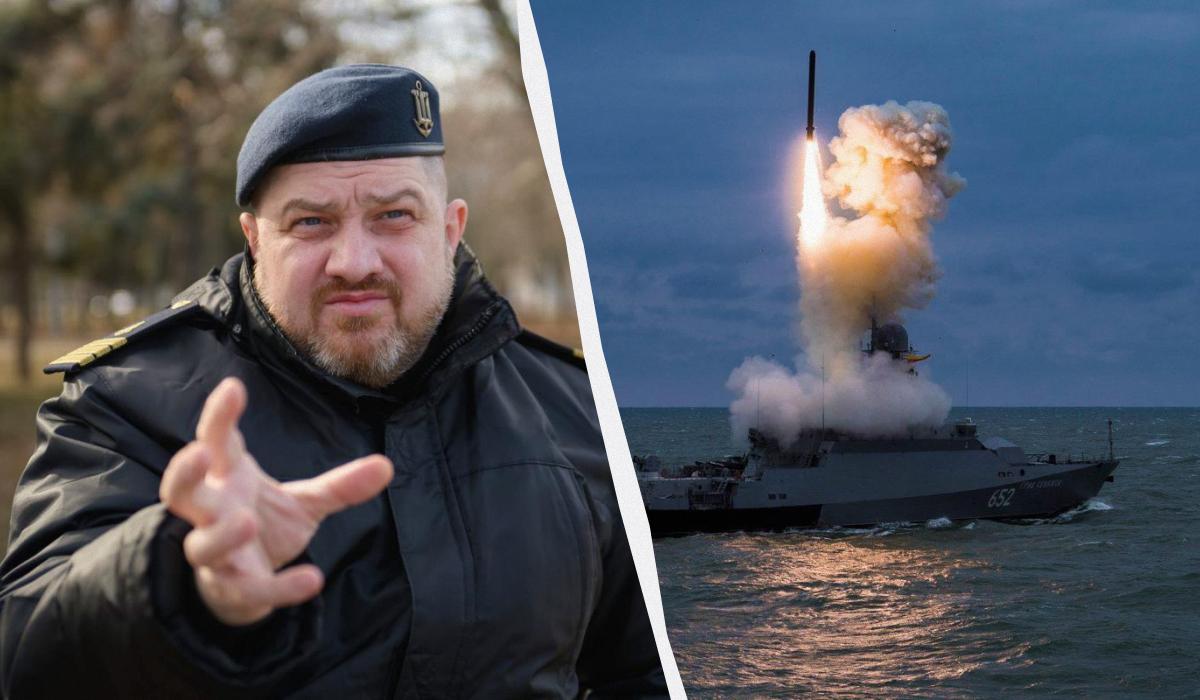
In the composition of the Black Sea Fleet of Russia, which is currently based in Novorossiysk (RF), there are still 8 missile carriers remaining. However, these vessels are not equipped with universal launch systems and can only launch "Caliber" missiles, which the Ukrainian Armed Forces have already learned to counter, said the spokesman for the Ukrainian Navy, Dmitry Pletenchuk, during a broadcast on FREEДOM.
According to him, the missile carriers of the Black Sea Fleet periodically participate in massive attacks on Ukraine alongside aviation and ground missile systems stationed in Crimea. However, as a rule, naval missile carriers are involved in attacks primarily to burden Ukrainian air defense, as the larger "Calibers" are currently not suitable, the Navy spokesman stated.
"An important point is that all eight missile carriers located in the Azov-Black Sea region are not equipped with universal launch silos. This somewhat simplifies our task. Because they cannot launch "Zircons" and other missiles, and they only use systems designed for "Calibers," which have somewhat lost their relevance as a means of destruction due to their technical characteristics and the acquisition of experience and upgrades in Ukraine's air defense systems," Pletenchuk noted.
He added that, in any case, we are currently in a stormy period, which does not favor frequent outings to sea.
"So, it is possible to go to sea, but applying missile weaponry is much more complicated. When you have [storm strength] of at least four points, and during the storm season, it can be even higher," Pletenchuk said.
Additionally, he mentioned that the danger of going out to sea also lies in the high likelihood of "collisions" with Ukrainian drones. Therefore, more often than not, the Russian base port in Novorossiysk is guarded by a submarine. Should there be any observed threat, anticipation, or the necessity to conduct training, Russian ships carry out dispersal operations.
"So, when we see ships massing from Novorossiysk, it means they are awaiting some action from our side or are training," the spokesman explained.
He stated that the main vulnerability of the Russian Black Sea Fleet lies in the loss of its flagship - the cruiser "Moskva," which was sunk by the Ukrainian Defense Forces in 2022. This ship was supposed to provide air cover, intelligence, and similar support for the entire enemy grouping. Furthermore, the Russians lost the ability to operate closer to the Ukrainian coastline and to base themselves in temporarily occupied Crimea, leading to the loss of their repair base.
"There are also nuances regarding the submarine fleet - they couldn’t approach us anyway due to the depth restrictions in the northern part of the Black Sea. Plus, there are no landing capabilities due to the loss of amphibious assault ships, meaning this function is practically unavailable to them now. And the maritime logistics, which have been undermined by the Ukrainian Defense Forces, is also one of those capabilities they have lost," Pletenchuk explained.
He reminded that the function of patrolling the maritime area is effectively carried out by Russian aviation.
Russia is losing the Baltic Sea
As reported by UNIAN, earlier the spokesman for the Ukrainian Navy Dmitry Pletenchuk warned of the threat of "surprises" from the Russians in the Baltic Sea. At the same time, he noted that the Baltic can already be considered a de facto internal sea of NATO.
He clarified that the window of opportunities for the occupiers has narrowed, particularly with the accession of new countries to the North Atlantic Alliance. Following the damage to communication and power supply systems traversing the Baltic Sea, there are plans to enhance NATO's maritime presence in the Baltic with a permanent grouping of ships.